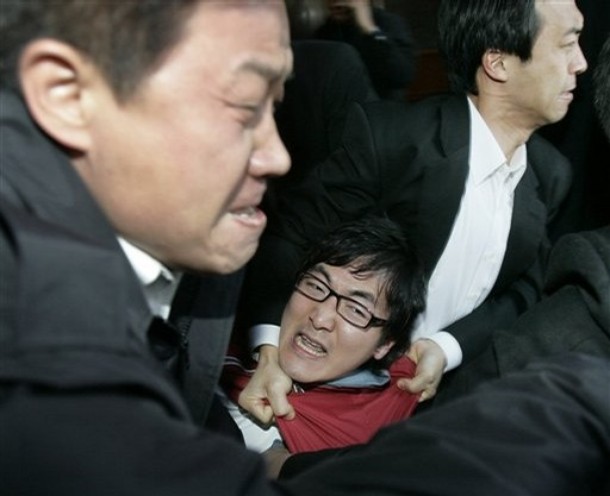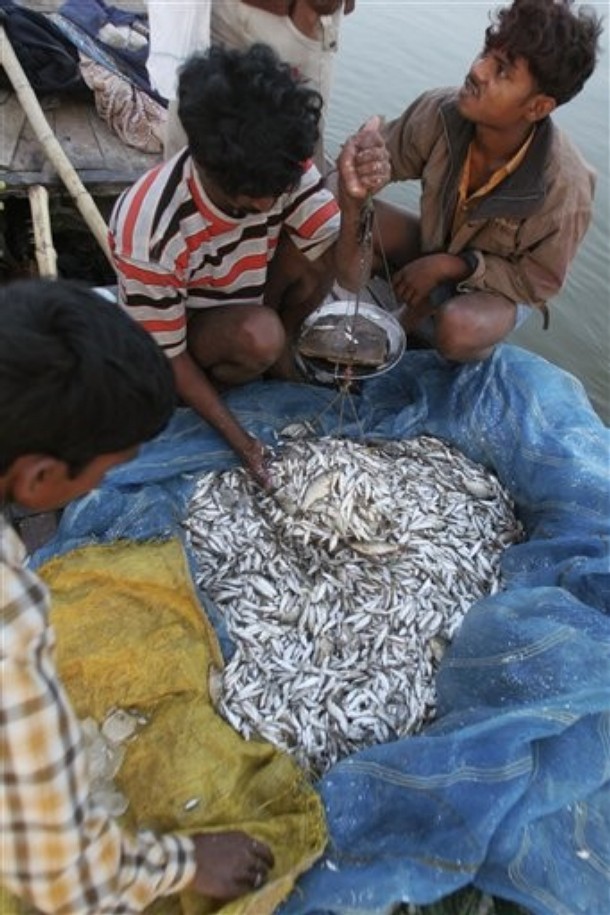SKorea’s opposition ends parliamentary occupation
Associated Press | 6 January 2008
SKorea’s opposition ends parliamentary occupation

(Photo: Ahn Young-joon)
SEOUL, South Korea (AP) — Opposition lawmakers ended their violent, 12-day siege of South Korea’s parliament Tuesday after blocking — for now — a U.S. free trade deal and other legislation.
Democratic Party legislators had occupied the National Assembly since Dec. 26, fending off security guards who tried to drag them out by force last week in scuffles that left nearly 100 people with minor injuries.
Party leader Rep. Chung Se-kyun said the parliamentary speaker assured him the ruling party would abandon its bid to ram through a raft of bills — including the free trade deal — by the end of the parliamentary session Thursday.
The ruling Grand National Party, which has 172 of the assembly’s 299 seats, wanted to pass some 80 bills before the current session ends. But because of the opposition siege, the legislation will be on hold until a later parliamentary session, probably next month.
"We have safeguarded parliamentary democracy," said Chung, flanked by lawmakers in front of the hall.
Chung apologized to the nation for the violence. Last month, opposition lawmakers armed with sledgehammers pounded their way into a committee room where ruling party lawmakers were meeting.
"The Democratic Party hopes there won’t be a situation where we cannot help but make this choice again," he said.
The ruling party has enough control of parliament to easily pass the government’s version of the legislation.
But Chung’s party had sought negotiations with the opposition to find a suitable compromise of the U.S. free trade pact and other bills — partly because the South Korean public prizes such consensus. Reports Tuesday said the rival parties were making progress in negotiations over the free trade pact and other bills.
The opposition says the bill must include measures to protect farmers, laborers and others expected to suffer from a surge in imports from the U.S.
Another point of dispute is a ruling party-sponsored bill that would ease restrictions on business and newspaper ownership of broadcast stations. Critics say the bill, which would help large, pro-government newspapers and companies establish television stations, is meant to give the Lee administration control over broadcasters.






